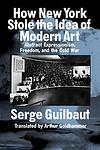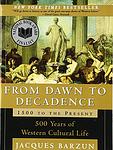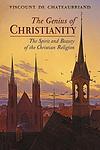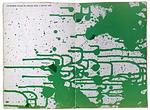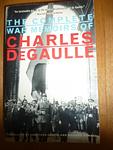The Greatest French, American "European History" Books of All Time
Click to learn how this list is calculated.
This list represents a comprehensive and trusted collection of the greatest books. Developed through a specialized algorithm, it brings together 305 'best of' book lists to form a definitive guide to the world's most acclaimed books. For those interested in how these books are chosen, additional details can be found on the rankings page.
Genres
European History is a category of books that focuses on the historical events, people, and cultures of Europe. It covers a wide range of topics, including the ancient civilizations of Greece and Rome, the Middle Ages, the Renaissance, the Enlightenment, and the modern era. This category of books explores the political, social, economic, and cultural developments that have shaped Europe over the centuries, from the rise and fall of empires to the impact of wars and revolutions. It provides readers with a deeper understanding of the rich and complex history of Europe and its influence on the world.
Countries
Date Range
Reading Statistics
Click the button below to see how many of these books you've read!
Download
If you're interested in downloading this list as a CSV file for use in a spreadsheet application, you can easily do so by clicking the button below. Please note that to ensure a manageable file size and faster download, the CSV will include details for only the first 500 books.
Download-
26. Say Nothing by Patrick Radden Keefe
This book is a gripping exploration of the Troubles in Northern Ireland, focusing on the disappearance of Jean McConville, a mother of ten who was abducted by the Irish Republican Army (IRA) in 1972. The narrative weaves together the stories of several key figures in the IRA, including Dolours Price, an IRA member who became disillusioned with the organization, and Brendan Hughes, a former IRA commander. The book delves deep into the political and personal complexities of the conflict, revealing the long-lasting trauma and moral ambiguities that continue to haunt those involved.
The 4566th Greatest Book of All Time -
27. Italian Days by Barbara Grizzutti Harrison
"Italian Days" is a richly woven travel memoir that takes the reader on an evocative journey through Italy's cities, culture, and history. The author's exploration is both external and internal, as she traverses the picturesque landscapes and delves into the art, architecture, and culinary delights that define the Italian experience. With a keen eye for detail and a deep appreciation for the country's heritage, the narrative is as much about the personal transformation that travel can inspire as it is about the vibrant tapestry of Italian life. The memoir is a celebration of the senses, inviting readers to lose themselves in the beauty and complexity of Italy's timeless allure.
The 5051st Greatest Book of All Time -
28. France And England In North America by Francis Parkman
This historical work offers a comprehensive examination of the complex and often turbulent relationship between France and England as they vied for dominance in North America from the sixteenth through the eighteenth centuries. The narrative delves into the exploration, colonization, and eventual conflicts that arose between the two European powers, highlighting the roles of key figures and the impact of their struggles on the indigenous populations. The series of volumes meticulously details the political maneuvers, military engagements, and cultural clashes that ultimately shaped the continent's colonial landscape and set the stage for the future of the United States and Canada.
The 5297th Greatest Book of All Time -
29. Feudal Society by Marc Bloch
"Feudal Society" is a comprehensive historical analysis that delves into the social, economic, and political structures of medieval Europe. The book explores the intricate system of feudalism, where society was hierarchically divided between kings, nobles, knights, and serfs, each bound by mutual obligations and duties. Through a detailed examination of legal documents, personal accounts, and other historical sources, the work illuminates how these relationships shaped European society from the ninth to the fifteenth century, influencing everything from land tenure and military service to legal jurisdiction and social norms. The study not only provides insights into the feudal system itself but also reflects on its long-term impacts on European history.
The 5535th Greatest Book of All Time -
30. The Coming Of The French Revolution by Georges Lefebvre
"The Coming of the French Revolution" provides a detailed analysis of the social, political, and economic factors that led to the French Revolution in 1789. The book examines the roles played by various classes of society, including the peasantry, bourgeoisie, and nobility, and highlights the escalating tensions that culminated in a profound transformation of the French state. The author uses a Marxist perspective to explore the class struggles and the rise of revolutionary ideas, illustrating how these elements combined to overthrow the old regime and set the stage for modern political changes.
The 5535th Greatest Book of All Time -
31. Two Towns In Provence by M. F. K. Fisher
This book is a captivating travel memoir that explores the rich cultural and gastronomic tapestry of the Provence region in France through the lens of the author's personal experiences living in two distinct towns. With a keen eye for detail and a deep appreciation for the local cuisine, customs, and landscapes, the author paints vivid portraits of Aix-en-Provence and Marseille, contrasting the quiet, art-infused elegance of the former with the bustling, port-side vibrancy of the latter. The narrative is a blend of introspective musings, character sketches of the towns' inhabitants, and evocative descriptions that transport readers to the heart of southern France, inviting them to savor the flavors and nuances of Provençal life.
The 5535th Greatest Book of All Time -
32. Montaillou by Emmanuel Le Roy Ladurie
The book is a detailed historical study of the lives of the inhabitants of Montaillou, a small village in the French Pyrenees, during the early 14th century. Based on the meticulous records of Jacques Fournier, the Bishop of Pamiers who later became Pope Benedict XII, the book explores the daily lives, beliefs, and social structures of a medieval community. It particularly focuses on how the villagers, including peasants and shepherds, interacted with the Cathar heresy and the Inquisition's efforts to suppress it. The work provides an in-depth look at medieval European rural life, religious practices, and the impact of ecclesiastical authority on individual lives.
The 5681st Greatest Book of All Time -
33. The History Of Sexuality by Michel Foucault
"The History of Sexuality" explores the complex relationship between power and sexual discourse, arguing that since the 17th century, Western societies have not repressed sexuality but rather incited it, making it an object of public discourse. The author examines how power operates through the production of knowledge about sex and uses this perspective to challenge the conventional narrative that society has been progressively liberating sexuality from repression. The book delves into the ways in which sexual norms and power relations are intertwined, suggesting that the discourse on sexuality is a tool of power used to regulate both individual bodies and entire populations.
The 5734th Greatest Book of All Time -
34. How New York Stole The Idea Of Modern Art by Serge Guilbaut
The book explores the complex socio-political dynamics and cultural maneuvering during the Cold War era that led to the shift of the center of the modern art world from Paris to New York. It delves into how this shift was not merely a natural evolution of artistic innovation but was significantly influenced by the American government, wealthy patrons, and influential art dealers. The narrative critically examines how these entities used modern art as a tool of cultural diplomacy to promote American values and capitalism, thereby reshaping the global art scene and redefining the concept of modern art itself.
The 6275th Greatest Book of All Time -
35. Catherine The Great: Portrait Of A Woman by Robert K. Massie
This biography provides an in-depth look at the life of the longest-reigning female leader of Russia, tracing her journey from a minor German princess to the powerful Empress of Russia. It delves into her political achievements, her efforts to modernize Russia, and her numerous romantic liaisons, all set against the backdrop of the opulence and intrigue of the 18th-century Russian court. The book paints a vivid portrait of a complex woman who wielded her intelligence and charisma to navigate the treacherous waters of court politics, expand her empire, and become one of the most influential figures in European history.
The 6570th Greatest Book of All Time -
36. From Dawn To Decadence : 1500 To The Present by Jacques Barzun
This book offers a sweeping overview of Western cultural life from the Renaissance to the early 21st century. It delves into the pivotal events, ideas, and personalities that have shaped the modern world, exploring how cultural movements and the evolution of thought have influenced society's development. The narrative weaves through various disciplines, including art, music, politics, and science, to provide a comprehensive understanding of the forces that have led to both the achievements and challenges of Western civilization. Through a rich tapestry of historical analysis, the work invites readers to reflect on the complexity and dynamism of the human experience over the last five centuries.
The 6695th Greatest Book of All Time -
37. The Great Divergence by Kenneth Pomeranz
This book challenges traditional views on the rise of the Western world's economic dominance, arguing that until the late 18th century, parts of Europe, China, Japan, and the Islamic world were similarly advanced. The author contends that geographical and ecological factors, rather than inherent cultural or technological superiority, played a crucial role in Europe's industrialization. Specifically, the availability of coal in Britain and the exploitation of the New World's resources are highlighted as pivotal in creating the "Great Divergence" between the West and the rest of the world. Through this lens, the book reevaluates the roots of global inequality and the factors that have shaped the modern economic landscape.
The 6697th Greatest Book of All Time -
38. The Bourgeois Experience by Peter Gay
"The Bourgeois Experience" explores the cultural and psychological nuances of the Victorian middle class, focusing on their attitudes towards love, sex, and personal identity. The book delves into how bourgeois values, shaped by capitalist and Protestant ethics, influenced private life and public behavior. Through a detailed examination of diaries, letters, and other personal documents, the author reveals the complexities and contradictions of bourgeois culture, challenging traditional views that often depict Victorian society as prudish and hypocritical. This work provides a nuanced understanding of the interplay between economic conditions, social norms, and intimate life in 19th-century bourgeois society.
The 7157th Greatest Book of All Time -
39. Europe Central by William T. Vollmann
The novel explores the moral decisions made by individuals during the most challenging circumstances, specifically focusing on the Eastern Front during World War II. It presents a series of interconnected stories revolving around key historical figures and events, such as the siege of Leningrad, the Soviet invasion of Germany, and the lives of famous composers and artists during this period. The book delves into the complexities of love, betrayal, sacrifice, and survival in the face of totalitarian regimes and war, highlighting the individual's struggle against the overwhelming forces of history.
The 7190th Greatest Book of All Time -
40. The Genius Of Christianity by François-Auguste-René de Chateaubriand
The book is a comprehensive defense and celebration of the Christian faith, arguing that Christianity is not only a source of moral and spiritual guidance but also a driving force for cultural and artistic excellence. The author presents Christianity as the foundation of Western civilization, attributing to it the genius behind its laws, customs, and institutions. He explores the religion's influence on literature, fine arts, and societal values, suggesting that the beauty and sublimity found in Christian doctrine, rituals, and symbolism have profoundly shaped human creativity and sentiment. The work serves as both an apologetic treatise and a romantic homage to the aesthetic and cultural contributions of Christianity throughout history.
The 7193rd Greatest Book of All Time -
41. Funerary Orations by Jacques-Bénigne Bosuet
"Funerary Orations" is a collection of sermons delivered by a prominent 17th-century French bishop and theologian, renowned for his eloquence and powerful rhetoric. The book comprises a series of eulogies for notable individuals of the time, including princes, princesses, and other members of the aristocracy. Through these orations, the author reflects on the lives and virtues of the deceased, while also contemplating the transient nature of life, the certainty of death, and the Christian perspective on mortality and the afterlife. His speeches are celebrated for their rich language, persuasive arguments, and the insight they provide into the religious and social values of his era.
The 7193rd Greatest Book of All Time -
42. Mémoires by Philippe de Commynes
"Mémoires" is a seminal work of French literature, providing a detailed account of late medieval European politics from the perspective of a diplomat and historian who served various masters, including the Dukes of Burgundy and the French king Louis XI. The author offers a rich narrative of the power struggles, diplomatic maneuvers, and courtly intrigues of his time, while also reflecting on the nature of governance, the ethics of leadership, and the unpredictability of fortune. His observations and analyses have made the work an invaluable resource for understanding the political and social dynamics of 15th-century Europe, as well as a pioneering example of political memoir.
The 7193rd Greatest Book of All Time -
43. The Thirty Years’ War by Andrew Kopkind
"The Thirty Years’ War" provides an in-depth analysis of one of Europe's most prolonged and devastating conflicts, spanning from 1618 to 1648. The book delves into the complex interplay of religious, political, and social factors that fueled the war, primarily fought within the Holy Roman Empire. It examines the roles of key figures and the impact of the war on the civilian population, highlighting the immense human suffering and the significant political changes it precipitated, which reshaped the European landscape. The narrative also explores the diplomatic maneuvers and treaties, culminating in the Peace of Westphalia, which significantly influenced the concept of state sovereignty and the modern international system.
The 7916th Greatest Book of All Time -
44. Lords of Finance: The Bankers Who Broke the World by Liaquat Ahamed
The book offers an in-depth analysis of the events leading up to the Great Depression from the perspective of four central bankers from the United States, Britain, France, and Germany. The author argues that these individuals, through their decision-making and policies, inadvertently contributed to the economic turmoil of the 1930s. The book provides a historical examination of the global financial system, monetary policy, and the role of central banks, ultimately highlighting the human factor in economic catastrophes.
The 7930th Greatest Book of All Time -
45. Gulag: A History by Anne Applebaum
"Gulag: A History" provides an in-depth historical account of the Soviet Union's forced labor camp system, known as the Gulag. The book explores the inception of these camps during the reign of Vladimir Lenin, their expansion under Joseph Stalin, and their eventual decline and closure. It also delves into the daily lives of the prisoners, their hardships, and the brutal conditions they endured. The book is based on a wealth of archival material, personal interviews, and memoirs, offering a comprehensive understanding of one of the darkest periods in human history.
The 8076th Greatest Book of All Time -
46. A Peace To End All Peace by David Fromkin
The book provides a detailed historical analysis of the Middle East from the onset of the First World War through to the early 1920s, focusing on how the decisions and actions of European powers, particularly Britain, led to the dismantling of the Ottoman Empire and the arbitrary redrawing of borders. It explores the diplomatic intrigues, strategic considerations, and often conflicting interests that shaped the modern Middle East, leading to a legacy of turmoil and conflict. The narrative critically examines the consequences of foreign intervention and the imposition of artificial state boundaries, shedding light on the origins of many of the region's ongoing struggles.
The 8118th Greatest Book of All Time -
47. Apollo’s Angels: A History Of Ballet by Jennifer Homans
"Apollo's Angels: A History of Ballet" by Jennifer Homans is a comprehensive and fascinating exploration of the history of ballet, tracing its origins in the French courts of the 17th century to its modern-day global prominence. Homans delves into the cultural and social contexts that shaped ballet over the centuries, examining the roles of gender, politics, and artistic innovation. She also provides insightful analyses of the most important ballets and choreographers throughout history, highlighting their contributions to the art form. A must-read for anyone interested in the history of dance and the arts.
The 8152nd Greatest Book of All Time -
48. Collapse by Jared Diamond
"Collapse" is an exploration of why certain societies throughout history have thrived while others have deteriorated and collapsed. The book delves into environmental problems, climate change, rapid population growth, and unwise political decisions as factors that contribute to the downfall of a civilization. The author uses examples from history such as the Mayans, the Vikings in Greenland, and modern examples like Rwanda and Haiti, to illustrate his points. It serves as both a historical analysis and a warning for modern societies to learn from the past in order to avoid a similar fate.
The 8227th Greatest Book of All Time -
49. Empire Of Cotton: A Global History by Sven Beckert
"Empire of Cotton" by Sven Beckert is a comprehensive global history of cotton, exploring its impact on the world economy, politics, and society from the 18th century to the present day. Beckert argues that cotton played a crucial role in the development of capitalism, colonialism, and imperialism, and that its production and trade were intimately linked to the exploitation of labor, the growth of slavery, and the rise of industrialization. The book offers a fascinating and thought-provoking perspective on the complex and often violent history of cotton and its enduring legacy in the modern world.
The 8595th Greatest Book of All Time -
50. The Complete War Memoirs Of Charles De Gaulle by Charles De Gaulle
"The Complete War Memoirs of Charles de Gaulle" is a comprehensive autobiographical account by the French general and statesman who led the Free French Forces during World War II. The memoirs detail his experiences and reflections from the fall of France, his leadership in exile, through to the liberation of Paris. De Gaulle provides in-depth insights into the political and military strategies of the Allies, the internal dynamics of the French Resistance, and the broader implications of the war on France and Europe. His narrative combines a detailed historical record with personal observations, revealing his enduring commitment to French sovereignty and his vision for the nation's future.
The 8750th Greatest Book of All Time
Reading Statistics
Click the button below to see how many of these books you've read!
Download
If you're interested in downloading this list as a CSV file for use in a spreadsheet application, you can easily do so by clicking the button below. Please note that to ensure a manageable file size and faster download, the CSV will include details for only the first 500 books.
Download







